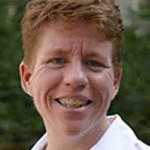Intersectionality means to recognize a person as having multiple identities. It is a way to describe someone without over-simplifying or neutralizing one’s identities.
That is the definition given by Dr. Kristen Renn, an international scholar and professor in the Michigan State University Higher, Adult, and life-long Education Program.

Intersectionality is a new term that has not yet made it into dictionaries. It developed through legal studies and has evolved into a term used in association with diversity. A person is more than a race, gender, social class or sexual orientation. They are many layers that cannot be described easily.
Renn led a workshop on intersectionality at the 2013 Student Affairs Colloquium, an event that has occurred consistently for three semesters. The workshop consisted of Renn’s presentation and group discussion.
“I think the conversations at our table were really helpful,” LGBT Coordinator Dr. Cindy Konrad, said. “When we sit with other people from different parts of the university and we think about how we’re doing things, it always sparks how we might push ourselves a little bit further to think about how we might do our work in a different way.”
Konrad said it is important to show students they are accepted by making their learning spaces comfortable and accepting places.
Renn said she was surprised that the room set for 98 people was almost completely full.
“I was incredibly impressed by how engaged people were in terms of really answering questions and looking at the Whitewater context,” Renn said. “I was really impressed by the commitment of faculty and staff who were here.”
In the afternoon, Renn gave a presentation on women in higher education. She shared her experiences of traveling to 15 all-women colleges and universities in 10 countries.

Junior Rachel Nepper, who attended both events, said she has been interested in doing research on intersectionality, and felt a connection to the topic because of her disability and working in the PB Poorman PRIDE Resource Center.
Nepper said she liked that Renn focused a lot on how to improve support in encouraging people to embrace and accept their identities.
“I’m really interested in what I, as a student, can do to support and enable people,” Nepper said.

